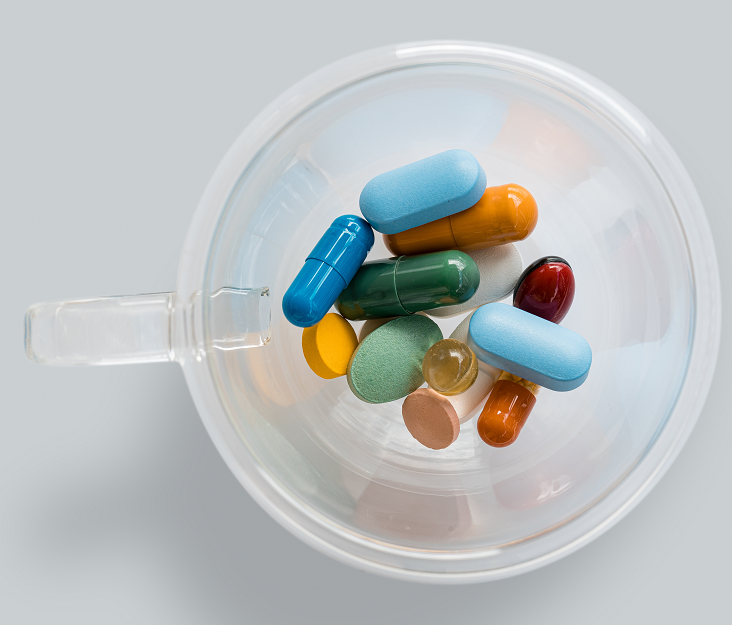Many people spend a lot of money buying health supplements because they know that their body needs vitamins. However, a lot of them don’t really know which vitamins they need nor why they need them. The purpose of this article is to explain the most essential items that your body needs to stay healthy, as well as where you can find them naturally in food. That way you can alter your diet to include the nutrition that you need without spending as much money on health supplements.
- Vitamin A
Vitamin A is Essential for the health of your skin. For example, it helps ensure that your skin is moisturized by keeping the mucous membranes moist. Therefore, it’s essential that you get plenty of Vitamin A during the winter and dryer months of the year to keep your skin from drying out and cracking on places like your hands and feet. In addition to healthy skin, Vitamin A promotes good eyesight and healthy bone growth as well. Good sources of Vitamin A include butter, eggs, and whole milk.
- Vitamin B1
Your body needs energy to properly function, as well as to enable you to perform physical activities. Vitamin B1 helps your body metabolize energy from the food you eat that contains carbohydrates and protein. You can find Vitamin B1 in pork, most cereals (just check the nutritional label), nuts, and seeds.
- Vitamin B2
Speaking of carbs and protein, your body uses Vitamin B2 to help it properly digest them and maintain a healthy appetite. Eggs, fish, meat, and milk are all excellent sources of Vitamin B2. Furthermore, you can find it in dark leafy vegetables, as well as in beer (from the yeast).
- Vitamin B3
Vitamin B3 is also important to maintaining a healthy appetite. Furthermore, it’s essential to enabling oxygen to flow through body tissue. You can find Vitamin B3 in bread, meat, and cereals – just be sure to check product labeling.
- Vitamin B6
Eating food wouldn’t do your body any good if it were unable to obtain nutrients and energy from it. Therefore, Vitamin B6 is responsible for obtaining the nutrients from food that your body so desperately needs to stay healthy. Furthermore, it helps reduce your chances of getting heart disease by removing excess homocysteine from your blood. Good sources of Vitamin B6 include soybeans, nuts, eggs, whole grains, fish, lamb, pork, chicken, and milk.
- Vitamin B12
Vitamin B12 is essential for helping your body produce healthy red blood cells. Furthermore, it enables the body to transmit messages between its nerve cells. For example, the ability to transmit messages between nerve cells allows you to hear, move, think, and do your normal daily activities. Vitamin B12 is so important that it’s added to many foods, like cereals. Other good sources include eggs, milk, and meat – especially chicken. The vitamin is stored in your liver and released as needed to keep you healthy.
- Vitamin C
Vitamin C is probably the most famous vitamin that people are familiar with. That’s because Vitamin C is often associated with supporting your immune system and helping you recover from illnesses like the common cold. However, it has many other important health benefits as well. For example, Vitamin C helps maintain your body’s connective tissues like the muscle, fat, and bone framework. It’s an antioxidant that helps the body heal from wounds and absorb iron. You can find Vitamin C in many fruits (like apples and oranges) and vegetables.
- Vitamin D
You likely know that calcium is important to the strength and health of your bones and teeth. Vitamin D is what enables your body to absorb calcium and use it. Oftentimes, Vitamin D is added to cereals and other foods. However, you can get an unlimited supply of it by spending time outdoors in the sun. Sunlight is the natural source for the vitamin. Just make sure that you use sunscreen to protect your skin from potential damage and health threats due to sun exposure.
- Vitamin E
Vitamin E is important for maintaining strong, healthy muscles. It’s also an antioxidant that is important to the health of the nervous system and reproductive system. You can find Vitamin E in whole grains, green leafy vegetables, and nuts. However, while most people have the problem of not getting enough vitamins, consuming too much Vitamin E can be dangerous to your health. There have actually been people who have overdosed by getting too much. Therefore, you need to research the amount of Vitamin E you should be consuming daily based on your age and weight. You can find the information online or by talking to your doctor.
- Vitamin K
Vitamin K plays the important role of blood clotting, so you don’t bleed to death after an injury. Vitamin K also helps make bones and kidney tissues. You can get Vitamin K by eating cereals, cheese, fruit, and dark leafy vegetables. Your body also produces it in the intestines using “good” bacteria.
In short, if you want your skin to be healthy and look its best, then you need to consume a lot of Vitamin A. Vitamins B1, B2, and B6 are all responsible for helping your body digest carbs and protein – and then transforming their nutrients into usable energy. Vitamin B3 allows you to maintain a healthy appetite, as well as ensures the oxygen flow through your body’s tissue. Many people have to boost their levels of B12 by taking shots periodically. However, you can get plenty of it by eating poultry and dairy products. Vitamin C is essential for keeping you healthy and helping you heal from infections. Vitamins D and E support, strong healthy bones and muscles respectively. Lastly, Vitamin K is what prevents you from bleeding to death after getting a cut, by clotting your blood.



